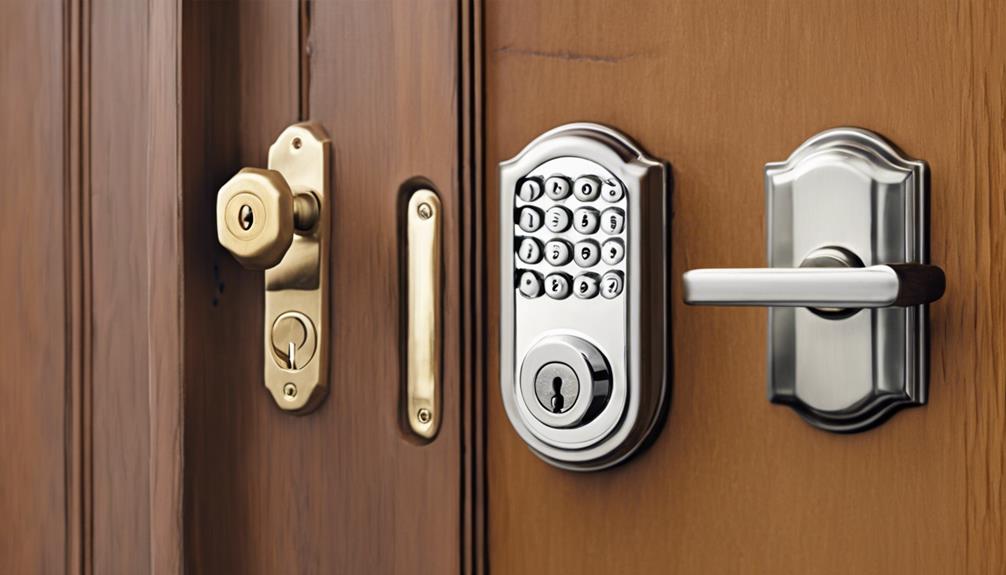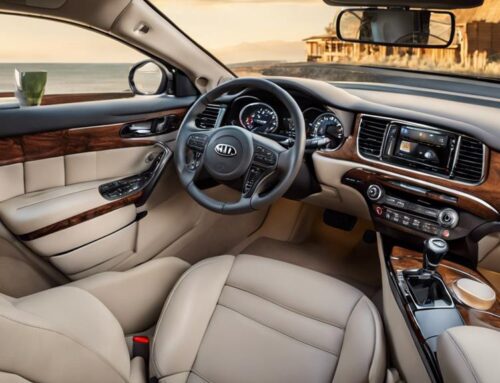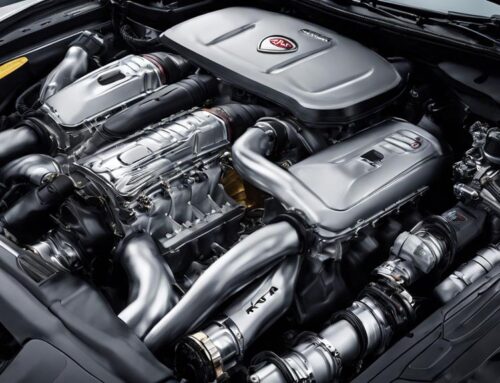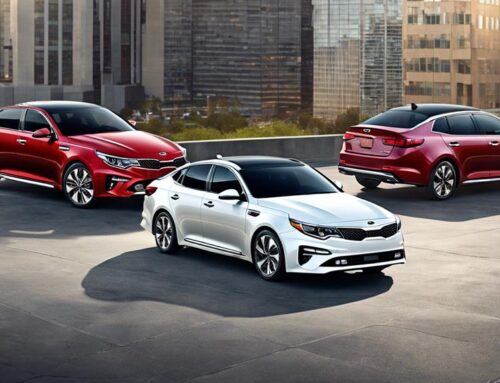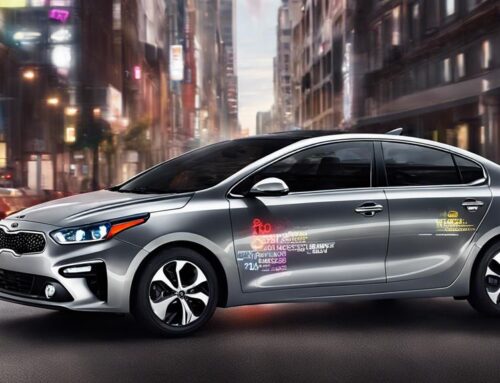To choose locks for different areas of your home, start by installing deadbolts on front doors for tough security. Combine doorknob locks and deadbolts on back doors for maximum protection. Ascertain windows have keyed or padlocked locks to deter intruders. Use keyed locks on garage doors to prevent unauthorized access. Install pool locks on gates for safety. Evaluate security needs, crime rates, pick resistance, and weather resistance when selecting locks. Consider factors like primary function, security level, compatibility, ease of use, and environmental conditions for lock type selection. Key technologies like smart locks and biometric access systems offer advanced security. Choosing the right locks for each area is vital for your home's safety and protection.
Key Takeaways
- Consider security needs for each area; use high-security locks like Grade 1 deadbolts for front doors.
- Assess crime rates in your area for appropriate lock selection; high-crime areas may need advanced locking mechanisms.
- Prioritize pick-resistant locks to deter break-ins; choose materials like brass or stainless steel for weather resistance.
- Ensure lock compatibility with door type and material; smart locks and keyless options offer convenience and security.
- Use keyed or padlocked window locks to prevent unauthorized access; secure pool areas with designated pool locks for safety.
Lock Types for Various Areas
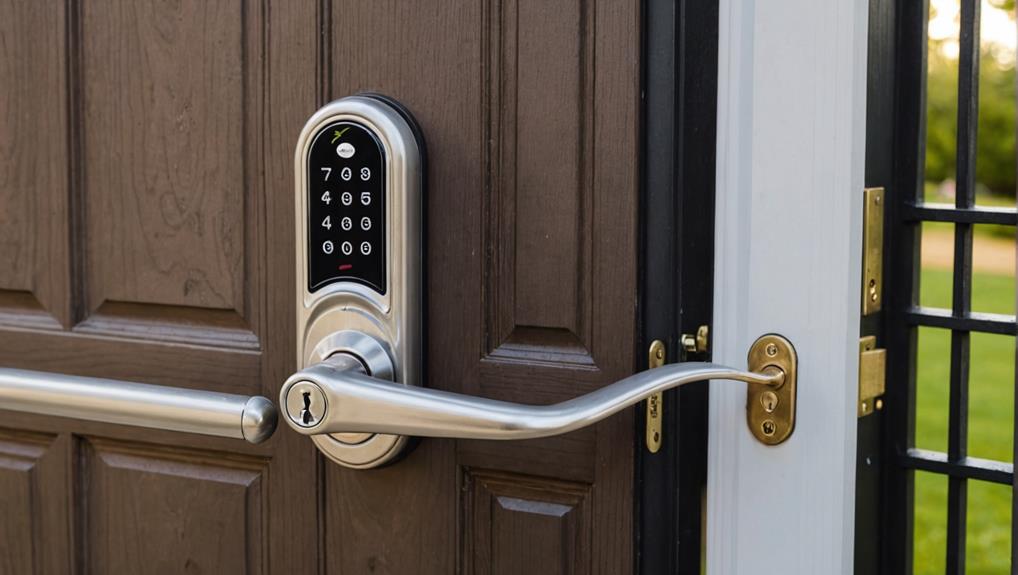
When considering the security of your home, it's essential to choose the right locks for different areas. For front doors, deadbolt locks are the best option as they're tough to pick and provide added security against break-ins.
It's also advisable to install smart locks for added convenience and real-time security monitoring.
Back doors, on the other hand, benefit from a combination of doorknob locks and deadbolts, installed by a professional for maximum protection.
Windows should have keyed or padlocked locks to deter intruders, as windows are common entry points for burglars.
Garage doors require keyed locks to prevent unauthorized access, securing your home from potential intrusions through the garage.
Finally, for safety around swimming pools, pool gates should be equipped with pool locks that require keys, ensuring that children and pets are kept safe by preventing accidental access to the pool area.
Considerations for Lock Security
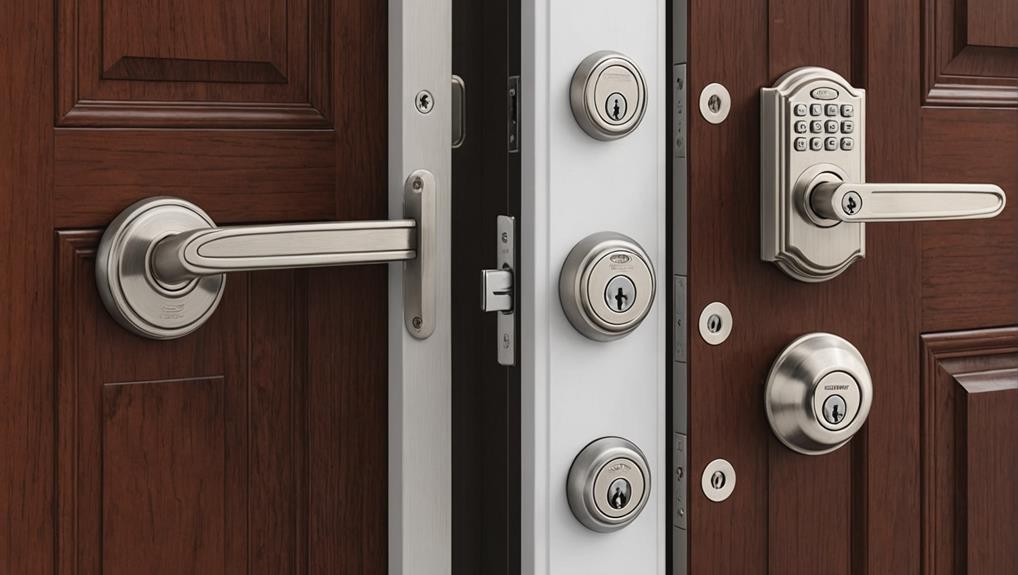
Considering the security requirements of your home, it becomes imperative to focus on the aspect of lock security.
When making decisions regarding home lock selection, keep the following considerations in mind:
– Evaluate the security needs of each area in your home, opting for high-security locks like Grade 1 deadbolts for front doors and lower security grades for interior doors.
For essential high-security locks, consider features that are designed specifically for residential use.
- Take into account the crime rates in your neighborhood; high-crime areas may necessitate advanced locking mechanisms and reinforced strike plates.
- Choose locks with pick resistance features to deter burglars who may attempt traditional break-in methods.
- Prioritize weather-resistant materials like brass or stainless steel for exterior locks to guarantee longevity and prevent rust in harsh conditions.
Factors in Lock Type Selection
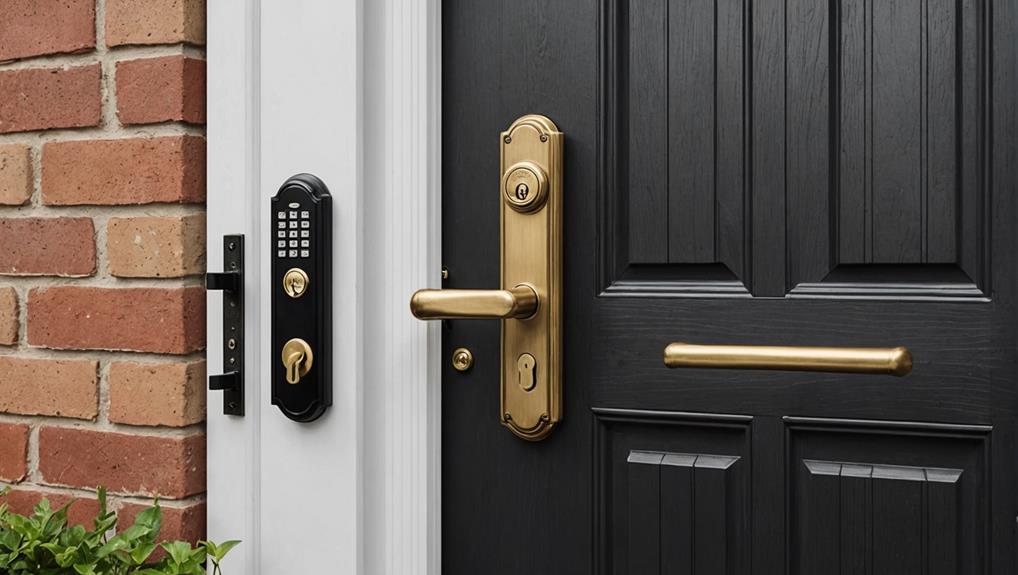
While selecting locks for your home, it's essential to take into account various factors contributing to the security and functionality of the lock type.
Consider the primary function of the area when choosing lock types by location. Front doors, serving as the main entry points, benefit from deadbolt locks for enhanced security. For added peace of mind, you might explore choosing the best lock for your front door security.
Interior doors, on the other hand, may only require privacy locks for basic protection.
Evaluate the security level needed based on the location. Exterior doors should be equipped with high-security locks (Grade 1) to deter intruders, while interior doors can be adequately secured with mid-tier options (Grade 2).
Assess the compatibility of the lock with the door type and material. Solid core doors require sturdier locks compared to hollow core doors to maintain security integrity.
Factor in ease of use and accessibility when selecting lock types. Consider keyless or smart locks for household members who may benefit from simplified operation, such as seniors or individuals with disabilities.
Additionally, take into account environmental conditions. Choose weather-resistant materials like brass or stainless steel for locks on exterior doors exposed to harsh climates.
Key Technologies & Innovations
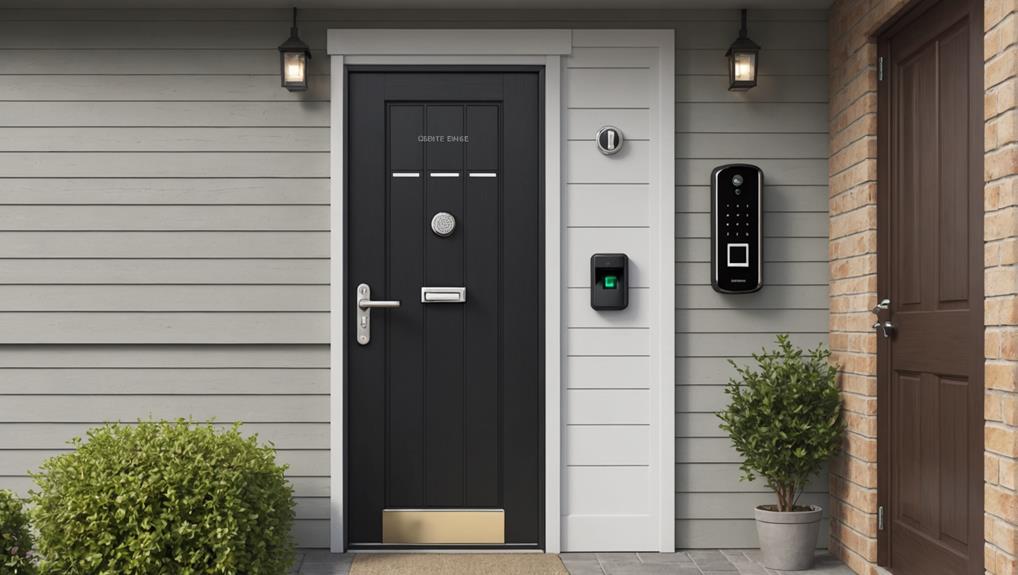
To investigate the domain of modern home security, it's essential to explore the key technologies and innovations revolutionizing the way we safeguard our homes.
When it comes to secure home locks, several advancements are shaping the landscape:
- Smart Locks: These locks can connect directly to Wi-Fi, eliminating the need for extra hubs and offering enhanced convenience and accessibility. Top Smart Locks on the market offer features such as remote access, voice control compatibility, and activity logs to monitor who enters and exits your home.
- Biometric Access Systems: Utilizing fingerprint and retinal scan technologies, these systems provide high security by only allowing authorized users to enter a home.
- Keyless Entry Options: Systems like electronic keypads and Bluetooth-enabled locks offer remote access and monitoring through smartphone applications.
- Retrofit Smart Locks: Enhancing existing deadbolts with smart functionalities, these locks blend traditional security with modern technology seamlessly.
Innovations such as thread technology have also played a significant role, enabling low-power wireless networking for smart devices without requiring additional hardware.
Keeping up with these advancements can help you make informed decisions when enhancing your home security.
Choosing the Right Locks
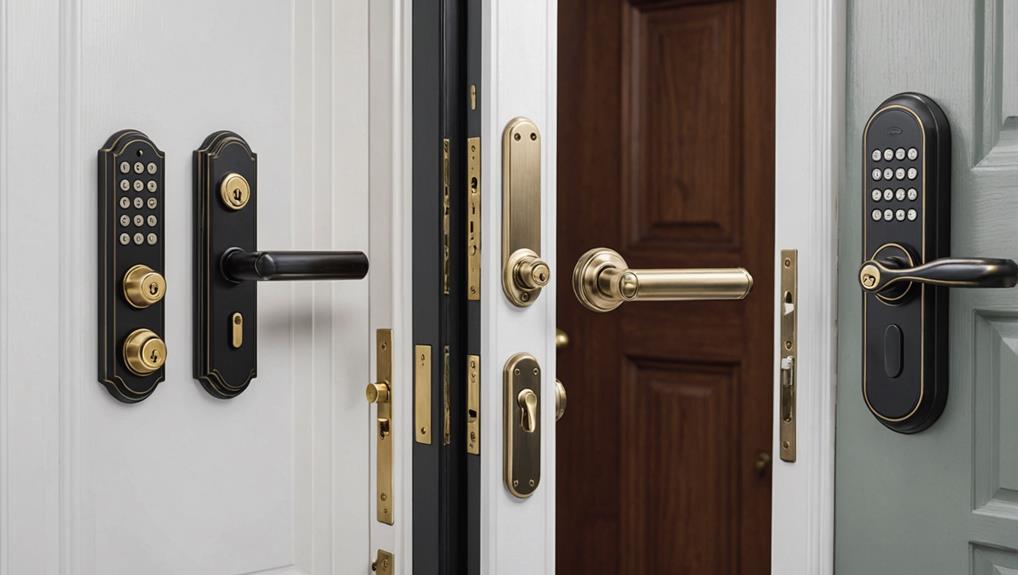
Enhancing the security of your home begins with choosing the right locks for various entry points. When selecting locks for your home, consider deadbolt locks for front doors as they're secure and tough to pick, deterring forced entry effectively.
Many experts recommend high-security locks that offer advanced features such as drill resistance and key control, enhancing overall protection. Back doors should have either doorknob locks or deadbolts, with professional installation ensuring a proper fit for enhanced security.
For windows, opt for keyed or padlocked window locks, especially on ground floors, to prevent unauthorized access. Safeguard garage doors with keyed locks to block entry through this commonly overlooked area.
Additionally, explore electronic locks for added security measures.
When it comes to interior doors, privacy locks are ideal for bedrooms and bathrooms, striking a balance between accessibility and security within your home.
Frequently Asked Questions
How to Choose Door Locks for Your New Home?
When choosing door locks for your new home, prioritize security by selecting high-security deadbolts for exterior doors and privacy locks for interior rooms.
Evaluate lock compatibility with door materials and consider investing in Grade 1 locks for maximum durability.
Keep your budget in mind while exploring advanced technologies like smart locks for added convenience.
What Are the Best Locks to Keep Burglars Out of Your House?
To keep burglars out of your house, opt for deadbolt locks on exterior doors for added security.
Grade 1 locks are highly recommended for their durability and resistance to picking.
Enhance door lock security by installing reinforced strike plates and using 3-inch screws to prevent forced entry.
Consider keyless entry systems like keypad or smart locks for added convenience and security.
Secure windows with keyed or padlocked locks to deter unauthorized access.
How Do I Make All My House Locks the Same?
To make all your house locks the same, consider rekeying existing locks for a single key. A locksmith can efficiently perform this task.
If you prefer new locks, buy a set from the same brand and model with matching keys. Manufacturers offer master key systems for controlling multiple locks with one key.
Smart locks can be managed through a single app for cohesive access. Confirm new locks match existing hardware for safety and uniformity.
How to Know Which Door Lock to Buy?
To know which door lock to buy, consider security needs for each area.
Grade 1 deadbolts for exterior doors and privacy locks for bedrooms and bathrooms offer suitable safety levels.
Match lock strength with door type and material.
Budget for quality locks to enhance security and potentially lower insurance costs.
Understand lock types like smart locks for convenience and traditional deadbolts for robust security.
Consult a professional locksmith for expert advice on selection and installation.
Conclusion
Overall, choosing the right locks for different areas of your home is essential for ensuring the safety and security of your property. By considering factors such as the level of security needed, the type of area being protected, and key technologies available, you can make informed decisions that will help keep your home safe from potential intruders. Remember to prioritize security when selecting locks to protect your loved ones and belongings.

